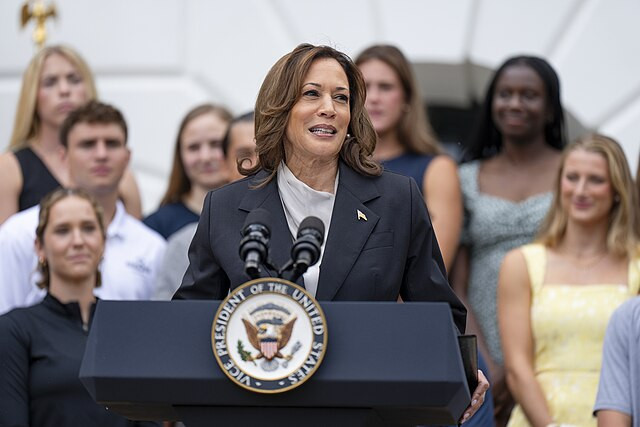Vice President Kamala Harris unveiled a bold "Opportunity Agenda" aimed at boosting support among Black male voters, offering a suite of economic policies designed to promote entrepreneurship and equity. Central to this proposal is a plan to provide one million forgivable loans to Black entrepreneurs, a move Harris hopes will counter former President Donald Trump's growing appeal among Black men in the upcoming election.
Harris' proposal, announced at a campaign stop in Erie, Pennsylvania, offers loans of up to $20,000 through a partnership between community banks, mission-driven lenders, and the Small Business Administration. These loans would be fully forgivable, allowing Black entrepreneurs and small business owners to start or grow businesses without the burden of repayment, provided they meet certain criteria.
"This agenda is part of the Vice President's vision of an Opportunity Economy, where Black men are given the tools to thrive-not just survive," explained Cedric Richmond, former U.S. Representative and Harris campaign co-chair. Richmond emphasized that Harris' plan is about empowering Black men to build wealth, buy homes, and provide for their families, a sharp contrast to what he called "a failed Republican economic agenda."
The proposal comes at a critical time for Harris, as polling shows that while Black voters still largely favor the vice president, Trump has made surprising inroads among Black men. A recent New York Times/Siena College poll found that while Harris holds a wide lead with Black voters, Trump is polling at 15% with Black men-up six percentage points from the 2020 election. This shift in support, coupled with concerns about voter turnout, has prompted the Harris campaign to focus intently on this key demographic.
In addition to her loan initiative, Harris' Opportunity Agenda also aims to dismantle barriers in the marijuana industry, particularly for Black Americans, who have long been disproportionately impacted by over-policing for cannabis-related offenses. Harris has pledged to legalize marijuana at the federal level and work with Congress to establish a safe and regulated marketplace for the cultivation, distribution, and possession of recreational marijuana.
"She will ensure that as the national cannabis industry takes shape, Black men-who have faced years of over-policing-can access wealth and jobs in this emerging market," the Harris campaign stated.
This stance marks a notable departure from President Biden's current approach to marijuana policy, which includes pardoning people convicted of marijuana possession and considering a reclassification of the drug. Harris is positioning herself as a more progressive option, particularly in an election where Trump has taken steps to appeal to Black voters on issues such as criminal justice reform.
Further differentiating herself from Trump, Harris has targeted economic disparities affecting Black communities. The Opportunity Agenda promises to invest in Black male teachers through expanded access to the Public Service Loan Forgiveness (PSLF) program. This initiative seeks to boost the presence of Black men in the public education system, as only 2% of public school teachers are Black men according to the 2020-2021 National Teacher and Principal Survey.
The vice president's economic agenda also extends into the burgeoning digital economy. Recognizing that over 20% of Black Americans have owned or invested in cryptocurrency, Harris proposed regulations aimed at protecting investors in the digital asset space. While the campaign did not release specific details about the framework, it's clear that Harris sees cryptocurrency as a pathway to economic equity for Black Americans.
"We know that Black men have embraced digital assets, and we must create safeguards to protect their investments in this emerging market," the campaign statement read.
Despite her efforts, Harris faces an uphill battle to galvanize Black male support, a challenge that has prompted even former President Barack Obama to weigh in. Obama, speaking last week, called on Black men to rally behind Harris, hinting that some might be reluctant to support her candidacy due to gender biases. The former president's comments underscored the broader stakes for the Democratic Party, which is relying on a strong showing among Black voters to counter Trump's bid to reclaim the presidency.
While Harris is campaigning hard to secure Black voters, Trump's team has painted her efforts as desperate. In a statement, the Trump campaign said, "Kamala Harris is in full-blown desperation mode, trying to patch up leaks in a voting bloc that has traditionally aligned with Democrats."
Harris' Opportunity Agenda also seeks to address healthcare inequities disproportionately affecting Black men, including mental health, diabetes, and sickle cell disease. Her campaign outlined plans for a health equity initiative focused on improving outcomes for Black men across a range of serious health issues.






